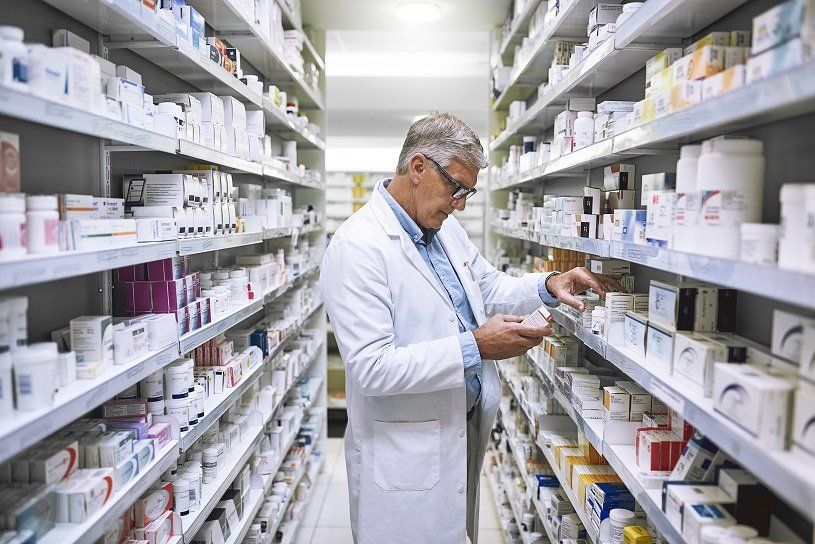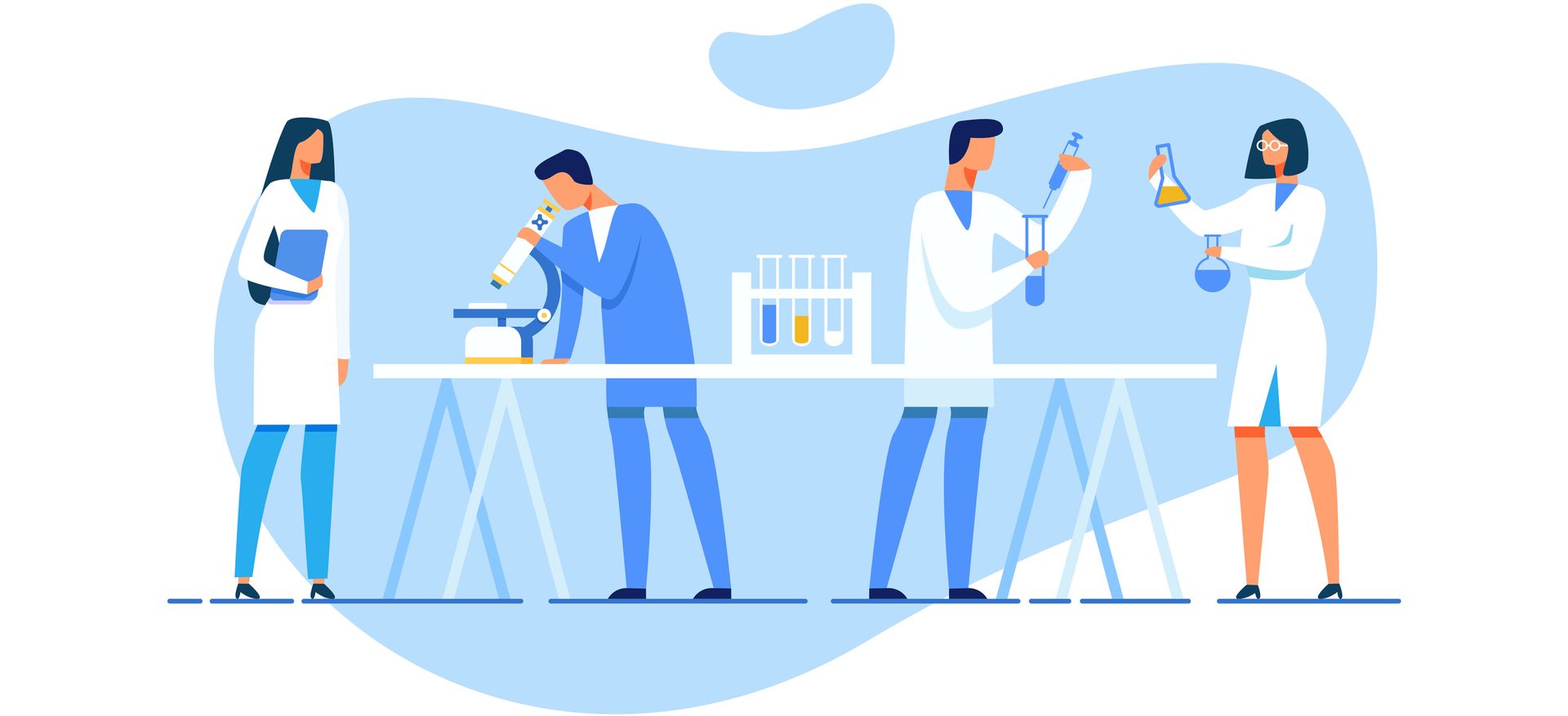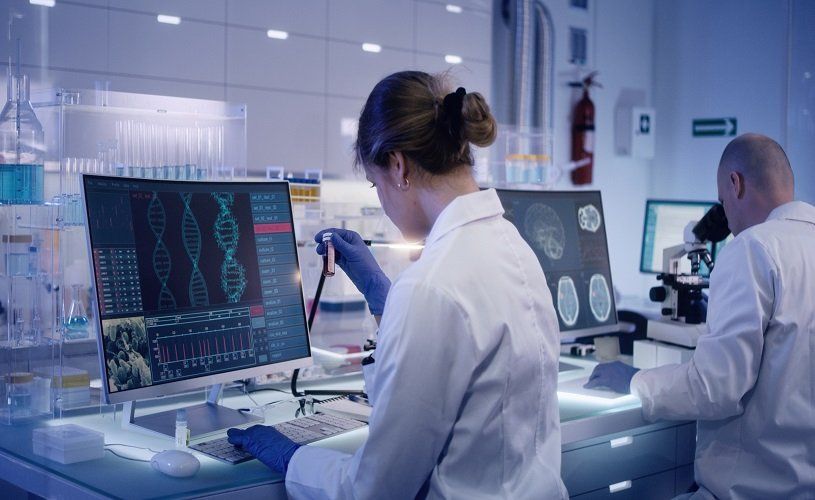Pharmaceutical
Pharmaceutical Blog

By Bayside Group
•
13 Dec, 2019
The pharmaceutical industry offers a wide and exciting range of job opportunities for those looking to work within this field, and can usually be broken down into three main categories; discovery research, development and commercialisation. While some of these roles will indeed require a background in science, it by no means you need to be a fully qualified pharmacist to find a fulfilling role in the industry. The professional pharmaceutical sector is not just limited to medicines for human or animal use, but also covers everything from medical devices, diagnostics and nutriceuticals through to academia, clinical investigator sites and sales-based roles. Here are six potential employment opportunities for those wanting to work within the pharmaceutical sector that you may not have considered. Laboratory Analyst A Laboratory Analyst is responsible for testing the microbiological makeup of new products and samples to ensure they are safe for use or consumption. Typically, a laboratory analyst would undertake duties such as the receipt, preparation, registration, storage and disposal of samples, which could include environmental, food, pharmaceutical and bio-hazardous materials. If the product isn’t correct, they would be responsible for evaluating the sample to determine what errors were made and communicating this with internal and external clients, so good communications skills is a desired trait. It’s a role that also requires a strict knowledge of federal compliance regulations and standards. Quality Manager Given the importance of precision when working with pharmaceuticals, the role of a Quality Manager is incredibly important and is an excellent opportunity for anyone who enjoys investigating and resolving issues and ensuring products are up to standards. The role requires managing records, delivering reports, implementing safety procedures for testing, and ensuring products meet the highest standards possible. Research and Development Manager This role is ideal for those who excel in the research and development area of pharmaceuticals, and involves research, project management, personnel management, and staying on top of large amounts of data. Many innovative pharmaceutical companies, academic centres and start-ups look for highly educated and talented individuals with at least a master’s degree – and preferably a PhD – in the industry. However it also requires a creative mindset, the ability to work in a multidisciplinary team and high-level organisational skills. Sales Representative Pharmaceutical Sales Representatives do not work directly with the development or testing of medicine, but instead are employed by pharmaceutical manufacturers and distributors to introduce their medications and products to prospective customers, which usually include physicians, pharmacy owners or other health professionals. While a Pharmaceutical Sales Representative isn’t necessarily required to have a science degree, an understanding of the pharmaceutical field will be advantageous. To be successful in this role, they would be expected to have exceptional interpersonal and communication skills, allowing them to develop and maintain client relationships. Scientific and Medical Writers Much of the activity performed during the development and research of pharmaceuticals generate a lot of study reports, publications, regulatory documents and applications, all of which will need to be written – and many in several languages. Most large pharma companies will have a scientific and/or medical writing department responsible for this role, ensuring that accurate information is communicated to stakeholders and the public. These departments are typically populated by life scientists and translators with excellent writing and communication skills, making it an ideal job for someone with these traits who has a keen interest in the pharma industry. Regulatory Compliance Officer A Regulatory Compliance Officer acts as the link between a company and the pharmaceutical regulatory authorities, ensuring that products are manufactured and distributed in such a way that adheres to legislation and industry standards. Their key responsibilities include undertaking and overseeing product trials and regulatory inspections, implementing quality standards around the workplace, liaising with regulatory bodies and offering advice about company policies, practices and systems to ensure best practice. This is a great position for someone with skills in problem solving, time management, communication, and who has an understanding and appreciation of relevant legal, scientific and manufacturing areas. If you’re looking for a job within the pharmaceutical industry, contact us today and speak with one of our experienced consultants, or search available jobs now.

03 Dec, 2019
Studying for a medical or scientific degree can be very different from the reality of working in your chosen field. Many graduates are finding out that there are ways to combine their love of science with other disciplines for rewarding careers. One area that is both potentially lucrative and challenging for medical and science graduates is sales. Sales is a rapidly changing field Disruptive technologies are changing the way people sell. The traditional door to door sales person has made way for technologically savvy and quick thinking individuals who can adapt to new situations. As a result, the skills that are required for salespeople are also changing. Modern salespeople need to be able to stay up to date with changes, use technology to their advantage, be data-driven and intuitively tap into their prospective customer’s pain points and needs. Salespeople today are true problem-solvers. These skills have created new opportunities for candidates who have a disciplined approach, highly tuned analytical skills and learning agility. Science skills are in high demand People with a science-based degree are well suited to the new world of sales. In addition, pharmaceutical, medical and other aligned organisations are searching for people who have the necessary technical understanding to sell their products. These businesses often provide people with life-saving devices and medications, giving those who work in the field the additional satisfaction of knowing they’re helping make the lives of others every day. Scientific skills are put to good use to not only understand the science behind the products but to also educate other clinical and medical professionals on how to administer products. That’s why science graduates are in high demand – they can speak to their customers with the same level of technical knowledge. A career in sales offers many benefits Learning to sell also adds another string to your bow which is transferable across organisations and industries. In addition, industries like pharmaceuticals are traditionally high-growth and considered ‘recession-proof’. That means you can expect to have the opportunity to progress with the potential to earn great benefits. Besides the financial benefits, sales give you the opportunity to work closely with and help a wide range of other people in their field. From medical professionals to patients, from researchers to regulators, sales professionals in the medical and pharmaceutical industries potentially advise and interact with a broad group of people every day. For many, this alone provides a great deal of satisfaction in their job and gives them the human stimulation they enjoy. Find out where your science degree can take you by partnering with an agency who understands your option.

17 Feb, 2019
Roles in the pharmaceutical industry are highly sought after. This is because the industry is relatively stable, in fact many consider it to be recession proof. Businesses in the pharmaceutical industry research, develop and manufacture medicines and pharmaceutical products. These products are in high demand, driving growth in the industry and offering a range of opportunities for both science graduates and non-graduates. The pharmaceutical industry is unique because it’s highly regulated. The Therapeutic Goods Administration (TGA) is responsible for evaluating and overseeing most pharmaceutical products marketed and sold in Australia. This means that some aspects of the industry are subject to strict regulations or require specialised skills. There are however some roles within the industry that don’t necessarily require a specialised scientific qualification. To determine what roles are available, it’s important to understand the different areas within the pharmaceutical industry and the type of opportunities they offer. These include: Research and development: This often involves working in laboratories to develop new medications. Some of the roles in research and development may involve specialising in specific areas of medicine like oncology or neuroscience. Many of the roles in this area require technical qualifications, but laboratory assistants and other similar roles may not require a degree. Clinical trials: Before drugs can be marketed and sold they need to be evaluated to make sure they’re safe and effective. This often occurs in a clinical trial. Many different people are involved in clinical trials including scientists and research associates, as well as pharmacists and nurses. Manufacturing: Once new medications have been developed they need to be produced en masse. There are a wide range of roles involved in the manufacturing process from engineers to manufacturing operators to production staff. Quality assurance and control: It’s essential to make sure products meet the requisite quality standards before they’re made available to consumers. Quality engineers, technicians and documentation specialists are involved in this process. Sales and marketing: Pharmaceutical sales and marketing requires specific knowledge and understanding of the regulatory environment. These roles are sought after because they often don’t require a scientific or technical qualification. There are also some industries that are similar to the pharmaceutical industry and require similar skills. These include: Nutritionals: This industry develops nutritional products rather than medication. This may include things like health supplements or powdered milk for babies. Medical devices: There are many different types of instruments or devices that are used in the medical industry. These include things that test health conditions, like blood glucose monitors, or devices that offer solutions for patients like cochlear hearing implants or contact lenses. If you’re interested in a role in the pharmaceutical industry, get in touch with us to explore your options.
Keyword Search
Categories
Specialisations
Workplace Relations
Powered with 💙 by
Shazamme © Copyright 2022 Bayside Group




